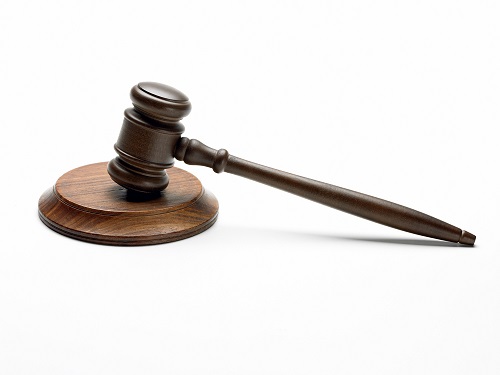‘Congratulations and Jubilations’ Sir Cliff Richard – what the world didn’t need to know

When it comes to celebrities, few have such inter-generational appeal than Sir Cliff Richard. Whilst Sir Cliff is not the only celebrity who seems to have been around forever, it would be true to say that many of Sir Cliff’s contemporaries have lost their shine, as a result of allegations of historic sex abuse, since their heydays in the ‘70s and ‘80s. Many of these allegations have come to nothing, however some such allegations have been shown to be true, and some popular entertainers have been convicted of serious offences, including comedian and musician Rolf Harris and radio DJ Dave Lee Travis.
Sir Cliff Richard was caught up in the storm caused by Jimmy Saville and Operation Yewtree too. In August 2014, a police raid was carried out at Sir Cliff’s home in Berkshire and the BBC (having advance notice of such a raid) covered the event prominently, and had a helicopter in place to record the point at which the police gained entry. It is said that Sir Cliff (in Portugal at the time) was told to turn the television on to see what was happening at his home, and broke down upon seeing the raid live on television.
Sir Cliff was never arrested, and after the initial furore died down, the allegations were dropped.
Sir Cliff’s claim
In the meantime, Sir Cliff Richard brought a claim against the BBC and the police force responsible for the raid. He claimed that a) the police force should not have told the BBC that they were intending on raiding his home, and b) that the BBC should not have published this information, either in the ‘sensational’ way it did, or at all.
It is worth noting at this stage that the claim against the BBC and the police force were not for defamation, i.e. that there were untrue statements of fact made about Sir Cliff which caused damage to his reputation. It was true that Sir Cliff’s house was being raided by the police, and therefore it would be difficult to found a claim for defamation on the reporting of this fact alone. This claim was for breach of Sir Cliff’s ‘privacy’, both under Article 8 of the European Convention on Human Rights, and under the Data Protection Act 1998 (now replaced with the General Data Protection Regulation).
Sir Cliff settled his dispute with the police force in the amount of £400,000 (plus costs of £300,000). His dispute with the BBC rumbled on, as did the police’s claim against the BBC for a contribution to the damages and costs for which it is liable.
The judgment
Mr Justice Mann, sitting in the High Court, found that the BBC had breached Sir Cliff’s privacy rights. In order to reach this conclusion, in short, the Court had to decide whether:
- Sir Cliff had a reasonable expectation of privacy in the fact he was a suspect in the police investigation; and
- If that was the case, and such information had been disclosed in spite of such expectation of privacy, was the BBC’s disclosure legal in accordance with its right of freedom of expression, and free press?
The Court found that Sir Cliff did have a reasonable expectation of privacy in the fact of the ongoing police investigation, and that (in general) this would be the case in the event of police investigations.
The Court then turned to consider the balancing exercise between Sir Cliff’s expectation of privacy, and the BBC’s right of freedom of expression. This also raised very important considerations about freedom of press. It was found that the balance here weighed in favour of Sir Cliff’s right to privacy, and against the BBC’s right to freedom of expression. In coming to this conclusion, Mr Justice Mann stated “In short… the BBC went in for an invasion of Sir Cliff’s privacy rights in a big way. The consequences of any disclosure of the police investigation would probably have been serious for Sir Cliff once the disclosure gained a wide currency. However, they are likely to have been magnified by the manner and style of the broadcasting that occurred in this particular case”. The Court did recognise the public importance of the circumstances which surrounded Operation Yewtree, but did not accept that the wider constitutional issue of the freedom of the press had as much significance in this case as the BBC had tried to attribute to it.
The Court therefore found that Sir Cliff’s privacy had been breached, and he was entitled to damages. As to the amount of damages, the Court awarded £190,000 by way of general damages, and a further £20,000 as aggravated damages. The Court’s basis for making an award for aggravated damages? The BBC had thought it appropriate to submit their coverage of the raid for the Royal Television Society’s “Scoop of the Year” Award. Needless to say, it did not win.
What does this mean?
The first thing to say is that this matter might not be over. The BBC has said that it is considering an appeal, saying “the judge has found that the very naming of Sir Cliff was unlawful. So even had the BBC not used helicopter shots or ran the story with less prominence, the Judge would still have found that the story was unlawful; despite ruling that what we broadcast was accurate.” In this particular case even the BBC themselves admit they would have done things differently, but (if the decision is not appealed) the long term effect of this judgment may be wide ranging and severe for freedom of the press.
That being said, as the law stands, it places great power in the hands of an individual to prevent a body from publishing private information about them (whether or not that information is true), or seeking damages where that information has already been placed in the public domain. This is particularly relevant for public figures, such as sportspeople, entertainers and politicians, whose public profile is likely to amplify such coverage.
However, this right does not only attach to public figures of Sir Cliff’s stature, nor the context of a police investigation. Whilst the cost of bringing such a claim may be prohibitive to those who haven’t had a 60 year recording career, by taking action quickly individuals may be able to prevent harmful material from being published at a more palatable cost. Speed, however, is the key.
If you have any questions on anything covered in this article, or on anything relating to defamation, please get in touch with our specialists Mike Barlow or Polly Langford on 01603 610911.
Note: the content of this article is for general information only and does not constitute legal advice. Specific legal advice should be taken in any specific circumstance.


